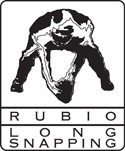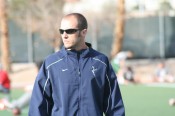10 Things a High School Coach Should Know About Their Kicker/Punter
1. A K/P is unique just like any other position player in the off season. They should train as athletes first. But they should also train specifically for their position. They should not be expected to just jump into any group and train like a lineman or defensive back that day. Take the time to structure an off season schedule for your K/P.
2. A K/P is only as good as his special team unit, especially the long snapper and holder. Kickers and punters should begin working with next year’s snapper and holder the day the season ends. An entire offseason is necessary to ensure a successful season. Don’t wait until the first day of camp. Also, the snapper and holder need to be players that actually want to play the position and spend the necessary hours working on and perfecting these key skills. Tip: chose the punter to be the holder.
3. Set a date and time to meet with your K/P as early in the off season as possible. Talk about season goals, specialist camp goals (Chris Sailer Kicking & Rubio Long Snapping), offseason schedule, in season schedule, snappers and holders, etc. Meet early and get on the same page and the team will dominate that third of the game we call “special teams”.
4. Your word goes a long way with college coaches. Please put in the time and effort to help your K/P find a college home. There are more colleges that need K/P’s then are there are good K/P’s out there to fill those needs. Believe me when I say, “Kickers, Punters, and Long Snappers” get scholarships for their specialty position. Help your K/P get a scholarship and take a portion of the credit. This is a great way to build your program.
5. K/P’s are like starting pitchers in baseball. They cannot kick/punt all day, every day. They have a K/P count, just like a pitcher has a pitch count. Focus on quality over quantity and have a plan. There a plenty of things for your K/P to do to improve their skills including muscle memory drills 7 days a week and film study each day. Provide a basic digital camera if possible.
6. If you want your kicker to be successful on the field during games, preparation starts during practice. Make time to give your K/P live reps during practice with the team. You cannot expect perfection in a game if you haven’t practiced it enough. Take more time to work on special teams during practice with live reps. If possible, work special teams right after early outs and stretching. See number 5.
7. Specialists need the full field for a portion of practice. Create an early outs session where all the kickers, punters, snappers, holders, and returners take the field before the rest of the team. 20-30 minutes time will do wonders.
8. Allow your K/P to determine the size of the kicking tees they use. Good kickers work extremely hard in the off season and know which size tee they have confidence using. Monitor the success rate of the kicks, not the tee size.
9. K/P’s are trained to be their own coach when it comes to technique. Unless you know what you are talking about, leave your K/P alone when it comes to technique. Again, monitor the success of the kicks, don’t analyze the technique.
10. Have your K/P’s back. Encourage, don’t discourage. There will come a time when a K/P will miss a big kick, shank a punt, etc. It happens to everyone. Your going to need your K/P to step up next time. Tell your K/P that you believe in them and get them back on the horse. If your K/P knows that you believe in them, they are 10 times more likely to have success.
(165)








